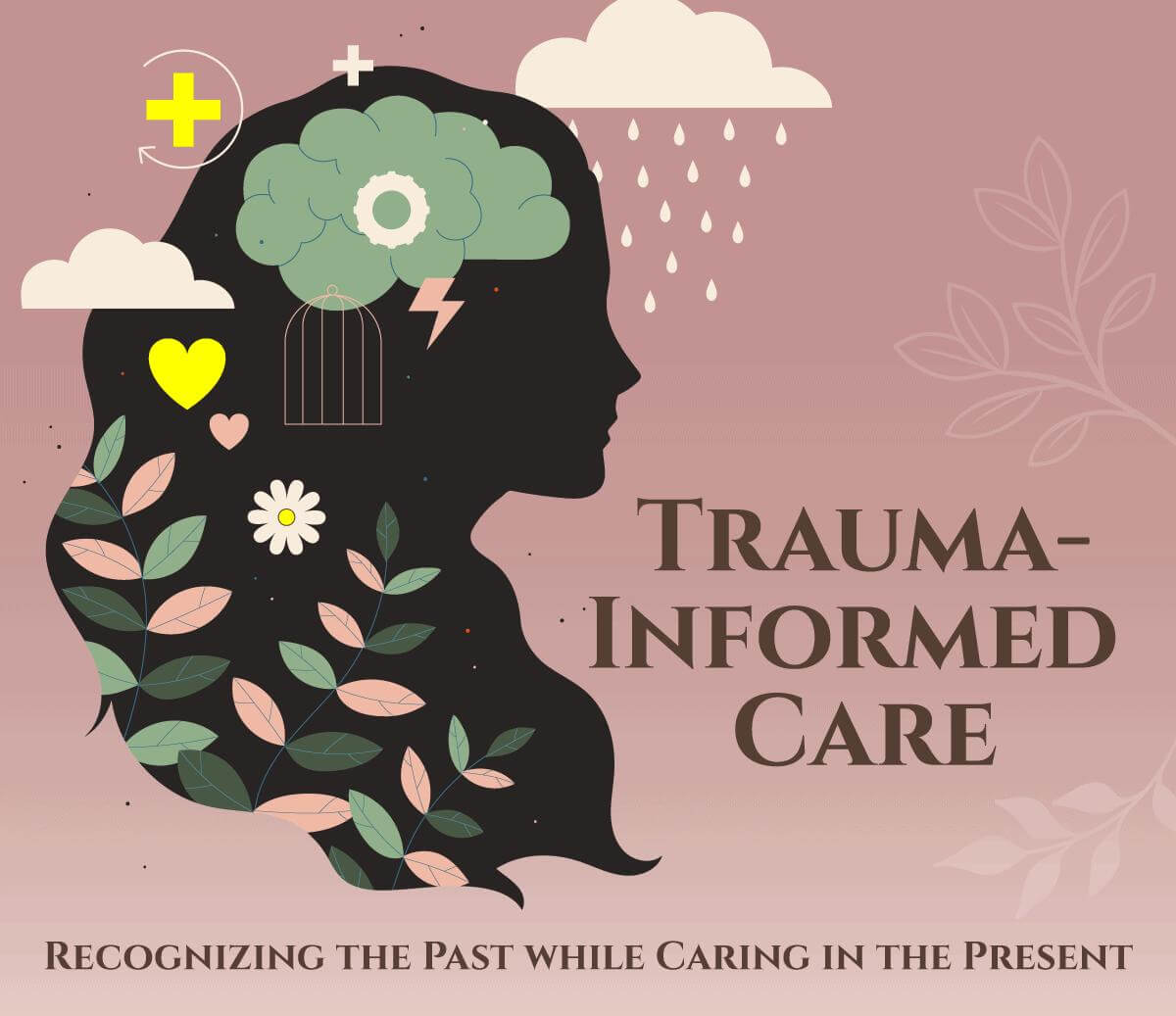
Pr. Lijo George
Fuller Theological Seminary
CN721 Mental Health Issues in Congregation
Dr. Chris Adams
10/28/22
Major Themes
Trauma-informed care
It is vital to understand that trauma is common, and every patient may have experienced serious trauma. Hospitals and doctor’s offices are usually intimidating environments for someone who has undergone trauma[1]. Most patients will not voluntarily provide details about their past medical history due to a sense of shame or guilt. Many doctors may inquire about the stability of a patient’s current relationships, but few would ask about their history. Trauma-informed care refers to the open-minded and compassionate treatment that all patients need[2]. A trauma-informed approach recognizes that healthcare organizations and care teams need a holistic understanding of a patient’s life circumstances (both past and present)[3]. Patients’ involvement, treatment adherence, and health outcomes may all benefit from trauma-informed approaches, as may the well-being of providers and other employees.
Trauma-informed treatment aims to do many different things. For instance, it helps the patient come to terms with the pervasive effects of trauma and learn about several routes to healing. Additionally, it takes proactive measures to prevent re-traumatization[4]. Using a trauma-informed treatment strategy at individual and institutional levels is essential. Providers and health systems sometimes try to integrate trauma-informed treatment at the clinical level without the essential support needed for widespread organizational culture change. This may cause daily operations to fluctuate in unpredictable and often unsustainable ways.
The foundation of trauma-informed treatment is built on six tenets. The first principle is safety. Both patients and employees are assured of their safety at all times while in treatment. Another tenet of trauma-informed treatment is ensuring the trust and transparency of all involved parties. Decisions are made openly to foster and sustain trust. Support from similarly situated peers is another guiding factor[5]. Those who have been through similar situations are valued team members and are given important roles in providing services. One of the most crucial aspects of trauma-informed treatment is working together to help those affected. Staff, customers, and employees within the same business are on equal footing in terms of power, facilitating more collaborative decision-making. In addition, empowerment is a crucial part of trauma-informed treatment. Staff and patients are encouraged to focus on and build upon their strengths, such as hopefulness and confidence in their capacity to recover from trauma. The last essential fundamental concept of trauma-informed treatment is humility and responsiveness[6]. All forms of prejudice and discrimination are acknowledged and addressed, including those based on race, ethnicity, sexual orientation, age, location, and past trauma.
Using a trauma-informed strategy has several advantages for both clinicians and patients. Having trouble communicating openly with their doctor is a common problem for trauma victims. Trauma-informed care gives patients a chance to be more involved in their treatment, build trust with their doctor, and see positive results in the long run[7]. Healthcare professional burnout is another possible source of high turnover; trauma-informed treatment might help alleviate this side effect.
Religious Support for People with Mental Illness
Few individuals are willing to discuss their struggles with mental health. As a result, many people mistakenly believe that mental illness is an anomaly that mostly affects our society’s outcasts and eccentrics. Mental illness is a reality that most pastors have had to deal with. About a quarter of those who seek treatment for mental illness initially turn to their local church. This is a far higher figure than the proportion of individuals who see psychiatrists and primary care physicians combined[8]. Sadly, many pastors lack the skills necessary to assist their congregations.
There are many ways the church may react to the mental health crisis. For example, celebrating and accepting that persons with mental illness are unique individuals, made in God’s image, deserving of love and respect. Persons who are suffering from mental health symptoms are just as valued as people who do not have a mental disease[9]. Secondly, encouraging a Christian community characterized by honesty and kindness. This culture encourages members to be open and vulnerable about their personal histories and current situations. This will help those who are mentally ill feel less stigmatized. Giving mentally ill patients their whole attention is still another strategy.
Another strategy the church can utilize is to Consider what practical ministry their team can do for those in crisis or who are ill in various ways and then go out of their way to help. The congregation may provide meals, babysit, pay medical visits, and even drop by unannounced if invited. There are many ways the church may assist financially, but one important one is the high expense of medical care. It is not uncommon for the monthly expense of psychiatric medicine to be in the thousands. Insurance companies often treat mental health conditions differently, and sometimes, even when medically essential, coverage is denied[10]. Many persons with mental illness cannot work or must stop working for a time, which has clear financial consequences. Lastly, the church may join the sick person in prayer. If a member of your congregation is struggling with mental illness and agrees, the congregation may join together in prayer on their behalf. In doing so, however, the church should be careful not to imply that prayer can replace professional mental health care.
Bibliography
Goddard, Anna, Erin Janicek, and LuAnn Etcher. “Trauma-informed care for the pediatric nurse.” Journal of Pediatric Nursing 62 (2022): 1-9.
Tim, Clinton, and Jared Pingleton. “The Struggle Is Real: How to Care for Mental and Relational Health Needs in the Church. Bloomington.” The Struggle is Real: How to Care for Mental and Relational Health Needs in the Church. Bloomington. Google. Accessed October 28, 2022. https://www.google.com/books/edition/The_Struggle_Is_Real/iK44DwAAQBAJ?hl=en&gbpv=1&dq=ISBN%3A%2B978-1512792997&printsec=frontcover.
Wang, David. “Trauma Informed Care with Dr. David Wang: Join Us on This Live Call on Trauma-Informed Care. If You Are Watching and Someone You Know Would Benefit from This Information, Give This Live Stream a…: By Urban Youth Workers Institute.” Facebook, 2022. https://www.facebook.com/UYWI/videos/trauma-informed-care-with-dr-david-wang/1325313757657718/Links.
[1] David Wang, “Trauma Informed Care with Dr. David Wang
[2] Ibid 1
[3] Ibid 1
[4] Goddard, Anna, Erin Janicek, and LuAnn Etcher. “Trauma-informed care for the pediatric nurse.” Journal of Pediatric Nursing 62 (2022): 1-9.
[5] Ibid 4
[6] Ibid 4
[7] Ibid 1
[8] Chris Adams, “Transference in Pastoral Counseling,” YouTube (YouTube, October 17, 2022), https://www.youtube.com/watch?v=a09U4kLHJcw.
[9] Ibid 8
[10] Ibid 8

